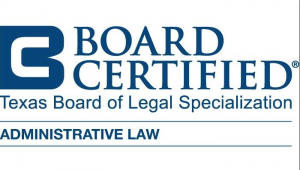License Defense
The Investigative Process
Although the investigative process can vary form agency to agency, we have used the Board of Nursing Examiners as an example of how an agency investigates alleged violations of the Applicable License Act.
The investigative process usually begins with either a complaint from a patient, co-worker, employer, employee, or colleague or sometimes a letter of self-report from the licensee. An investigation can also be initiated with the filing of criminal charges, the renewal of a license, or a malpractice claim. Another possibility when the licensee is placed on a criminal probation or receives a criminal conviction which can also trigger an investigation into licensee’s misconduct and alleged violations of the Nurse Practice Act.
Once the process is started, the licensee is generally notified by a certified letter from the Board’s Director of Investigations that indicates an assigned investigator. The licensee is instructed to explain and respond in a detailed narrative his/her position regarding the alleged professional misconduct and purported violation(s) of the License Act. The assigned investigator may contact the licensee directly or by telephone once the investigation is started. If the licensee has hired an attorney, the Board is prohibited from directly communicating with the licensee. Therefore, it is prudent for a licensee to obtain legal counsel as soon as they are notified that an investigation has been initiated. If a licensee has not hired an attorney but intends to do so they may tell the Board’s investigator they are planning to retain an attorney and will contact them once an attorney has been hired. If a licensee advises the investigator that they plan to employ counsel, they should actually follow through on their representation, otherwise their actions may be construed as uncooperative and have a negative impact on the Board’s investigation.
The Board’s investigators then gather evidence regarding the allegations by interviewing witnesses and obtaining records and other documentation about the pertinent issues. If the licensee has not hired an attorney, the Board’s investigator may contact them periodically for further information and questioning. The Board has 180 days to complete an investigation unless there is good cause for the investigation to continue or not to have been finalized.
Once the investigation is complete, the material and evidence gathered is sent to the legal department and reviewed. If it is determined that probable cause exists to believe the nurse has violated the Nurse Practice Act, an Informal Settlement Conference/Show Case Hearing (ISC) may be requested. In cases where the alleged misconduct is severe or it is apparent that the licensee poses a continuing threat to the health, safety and welfare of the public, the Board may seek an Emergency Suspension Order and/or immediately file charges against the licensee through the State Office of Administrative Hearings (SOAH).
The ISC is scheduled several months in advance at the Board’s headquarters in Austin and presents the best opportunity to settle the case without a contested hearing at SOAH. This ISC is attended by Katherine Thomas, Executive Director, or her designee, Anthony Diggs, Director of Investigations, legal counsel for the Board, the assigned investigator and the nurse and his/her counsel of record, if applicable. During the conference, all evidence is presented and reviewed and questions are asked of the licensee by those in attendance. The licensee and his/her counsel is also provided the opportunity to respond to the allegations, to ask questions and to provide any additional information that he/she feels is appropriate. At the conclusion of the conference, the nurse is informed of the recommended disposition of his/her case.
The nurse is given twenty days to accept or reject the Board’s Settlement offer. If the settlement offer is rejected and no agreement can be made, the Board will generally file formal charges against the licensee nurse at SOAH.
All contested hearings are held in the State Office of Administrative Hearings. The proceeding is before an Administrative Law Judge and is similar in form to a civil trial. The proceedings are complicated and the licensee can be easily overwhelmed by the process if they are not represented by an attorney. Witnesses are called, evidence is submitted and at the conclusion the Administrative Law Judge renders a proposed final decision (PFD) which includes findings of fact and conclusions of Law. The matter is then presented to the Board for a adoption of the PFD with the appropriate disciplinary penalty consistent with the SOAH Judge’s findings. The burden or proof is on the Board and they must show that there is substantial evidence that the licensee violated one or more of the provisions of the license Act.
In the event either the Board or the licensee disagrees with the findings, or the Board does not issue a disciplinary sanction consistent with the Administrative Law Judge’s PFD, then the matter can be appealed to District Court and beyond if necessary. The Appellate process is addressed in the Appeals Section.

